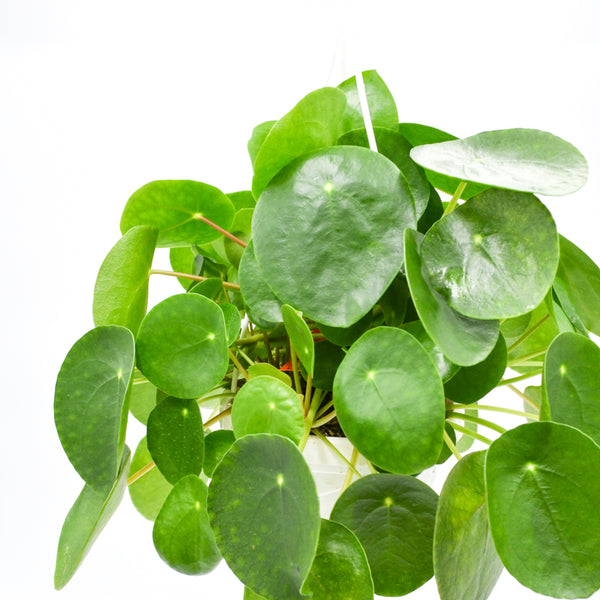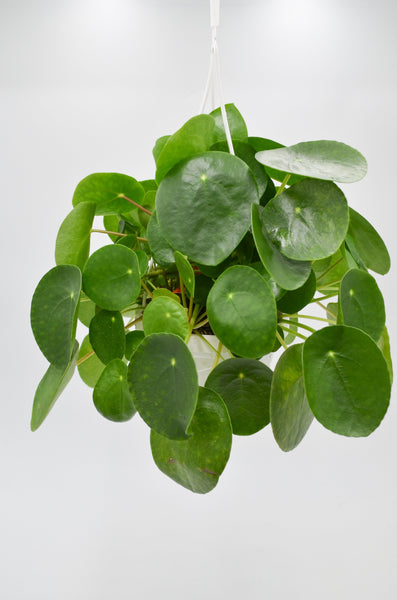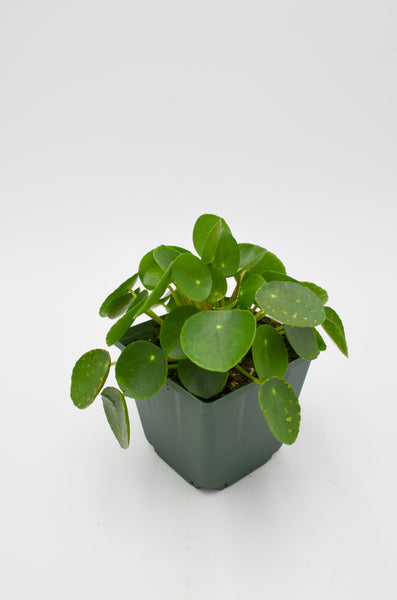Chinese Money Plant (Pilea peperomioides)
Pilea peperomioides, commonly known as the Chinese money plant, pancake plant, or UFO plant, is a popular houseplant appreciated for its round, coin-shaped leaves and easy-to-care-for nature. Follow these care instructions to keep your Pilea peperomioides healthy and thriving:
-
Light: Place your Pilea peperomioides in a location with bright, indirect light. While it can tolerate some direct morning or late afternoon sunlight, prolonged exposure to harsh sunlight can scorch the leaves. Rotate the plant occasionally to ensure even light exposure.
-
Water: Allow the top 1-2 inches of soil to dry out between waterings. Water your Pilea peperomioides thoroughly until it drains from the bottom of the pot, and then allow the excess water to drain completely. Be cautious not to overwater, as this can lead to root rot.
-
Humidity: Pilea peperomioides can tolerate average indoor humidity levels, but it will appreciate a boost in humidity, especially during dry winter months. To increase humidity, you can place a tray filled with water and pebbles underneath the pot, mist the leaves occasionally, or use a humidifier.
-
Temperature: Maintain a temperature range of 60-75°F (15-24°C) for optimal growth. Pilea peperomioides can tolerate a range of temperatures but avoid exposing it to temperatures below 50°F (10°C) or sudden temperature changes.
-
Fertilizer: Feed your Pilea peperomioides with a balanced liquid fertilizer every 4-6 weeks during the growing season (spring and summer). Use a half-strength solution to avoid over-fertilizing. Reduce feeding to once every 2-3 months during fall and winter.
-
Pruning: Prune your Pilea peperomioides as needed to maintain its shape and size. Remove any yellow or brown leaves and trim the tips if they become damaged. You can also pinch back the growing tips to encourage bushier growth.
-
Repotting: Repot your Pilea peperomioides every 2-3 years or when the roots outgrow the pot. Choose a well-draining potting mix and a pot that is 1-2 inches larger in diameter than the current one. Be gentle when handling the roots, and water the plant thoroughly after repotting.
-
Pest control: Keep an eye out for common pests such as spider mites, mealybugs, and aphids. Treat any infestations with insecticidal soap or neem oil, following the manufacturer's instructions.
Pet-friendly or toxic to pets?
According to the ASPCA, Pilea peperomioides is non-toxic to cats and dogs. They are considered pet-friendly plants, making them a great addition to households with pets. However, it's always a good idea to discourage pets from chewing on plants to avoid potential choking hazards or digestive issues. If you have concerns about your pet's health, contact your veterinarian.






